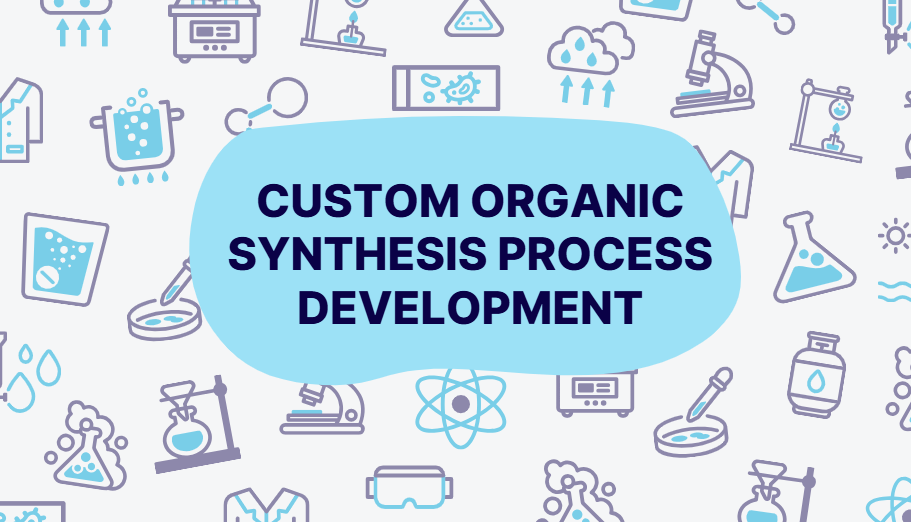Polymers are ubiquitous in modern life, appearing in everything from medical devices and packaging materials to advanced drug delivery systems. Custom polymer synthesis is the process of designing and creating polymers tailored to meet specific requirements. Whether you’re a beginner or an expert, understanding the fundamentals of this transformative field opens doors to innovation across industries.
This guide provides a comprehensive overview of custom polymer synthesis, breaking down the science, applications, and benefits for beginners.
What is Custom Polymer Synthesis?
At its core, custom polymer synthesis involves designing and fabricating polymeric materials with specific chemical, physical, or biological properties. Unlike off-the-shelf polymers, these materials are engineered to meet precise functional demands in fields like medicine, electronics, and sustainable packaging.
The Basics of Polymers
What are Polymers?
Polymers are long-chain molecules composed of repeating structural units called monomers. They can be:
- Natural: Examples include DNA, cellulose, and proteins.
- Synthetic: Examples include polyethylene, polystyrene, and polyesters.
Types of Polymers
- Thermoplastics: Softened by heat and reshaped repeatedly (e.g., polyethylene, PVC).
- Thermosets: Harden permanently after being shaped (e.g., epoxy resins).
- Elastomers: Rubber-like materials with high elasticity (e.g., silicone).
How Custom Polymer Synthesis Works
Custom polymer synthesis requires understanding the chemistry of polymerization—the process of linking monomers to form polymers. Below are the key steps:
1. Monomer Selection
Monomers are chosen based on the desired properties of the final polymer. For instance:
- Hydrophobic monomers for water-resistant materials.
- Biocompatible monomers for medical applications.
2. Polymerization Techniques
Different methods are used to synthesize polymers:
- Free Radical Polymerization: Common for making plastics.
- Ionic Polymerization: Useful for high-precision applications.
- Ring-Opening Polymerization: Ideal for biodegradable polymers.
3. Functionalization
This involves modifying the polymer’s structure post-synthesis to add specific functionalities, such as:
- Improved adhesion.
- Enhanced thermal resistance.
4. Characterization and Testing
The final polymer is tested for:
- Molecular Weight: Determines the polymer’s strength and elasticity.
- Thermal Properties: Assesses heat resistance.
- Mechanical Properties: Measures durability under stress.
Applications of Custom Polymers
1. Biomedical Applications
Custom polymers are critical in:
- Drug Delivery Systems: Controlled release of drugs.
- Tissue Engineering: Scaffolds for growing tissues.
- Medical Devices: Biocompatible coatings and implants.
2. Sustainable Packaging
Custom biodegradable polymers, such as polylactic acid (PLA), are replacing conventional plastics to reduce environmental impact.
3. Electronics
Polymers like polyimides are tailored for flexible circuits, lightweight components, and high-temperature applications.
4. Automotive and Aerospace
Lightweight, high-strength custom polymers improve fuel efficiency and durability in vehicles and aircraft.
5. Consumer Goods
Polymers with custom colors, textures, and properties enhance product design and functionality.
Benefits of Custom Polymer Synthesis
- Tailored Properties: Polymers are designed for specific applications.
- Enhanced Performance: Improved thermal stability, strength, or flexibility.
- Sustainability: Development of eco-friendly alternatives.
- Innovation Enablement: Opens doors to new technologies in various fields.
Getting Started with Custom Polymer Synthesis
Essential Tools and Techniques
- Laboratory Equipment: Reactors, spectrometers, and chromatography systems.
- Computational Tools: Software for molecular modeling and property prediction.
Key Concepts to Master
- Polymer Chemistry: Basics of monomers and polymerization.
- Material Properties: Understanding thermal, mechanical, and chemical characteristics.
- Analytical Techniques: Methods like FTIR, NMR, and GPC for polymer analysis.
Challenges in Custom Polymer Synthesis
1. Complexity of Design
Creating polymers with precise properties often requires advanced knowledge of chemistry and material science.
2. Cost
Custom polymers can be expensive to develop and manufacture, especially for small-scale applications.
3. Environmental Concerns
The production of some polymers involves hazardous chemicals or generates waste. However, advancements in green chemistry are mitigating these issues.
4. Scalability
Transitioning from laboratory-scale synthesis to large-scale production can be challenging.
Future of Custom Polymer Synthesis
The field of custom polymer synthesis is evolving rapidly, with exciting trends emerging:
1. Smart Polymers
These materials respond to environmental stimuli like temperature, light, or pH, enabling applications in drug delivery and sensors.
2. Biodegradable and Bio-Based Polymers
Sustainability is driving the development of polymers derived from renewable resources.
3. Nanotechnology Integration
Custom polymers combined with nanomaterials are opening new possibilities in medicine, electronics, and energy storage.
4. 3D Printing
Custom polymers tailored for additive manufacturing are revolutionizing industries by enabling on-demand production of complex parts.
How ResolveMass Laboratories Can Help
If you’re ready to explore the world of custom polymer synthesis, ResolveMass Laboratories offers expert services to guide you from concept to creation. We specialize in:
- Material Design and Synthesis
- Polymer Characterization and Testing
- Application-Specific Solutions
Explore Our Services

- Custom Polymer Synthesis
- Advanced Material Analysis
- Sustainable Packaging Solutions
Contact Us to discuss how we can help bring your polymer innovation to life.
References
- Matyjaszewski, K., & Davis, T. P. (2002). Handbook of radical polymerization. Wiley-Interscience. DOI: 10.1002/0471220450
- Peppas, N. A., et al. (2000). Hydrogels in pharmaceutical formulations. European Journal of Pharmaceutics and Biopharmaceutics. DOI: 10.1016/S0939-6411(00)00090-4
- Stuart, M. A. C., et al. (2010). Responsive polymers in drug delivery. Nature Materials. DOI: 10.1038/nmat2629
- Hodge, P. (1993). Polymer science and technology. CRC Press. DOI: 10.1201/b12156

